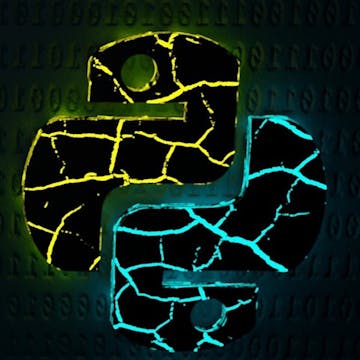
Python is an Object Oriented Language. Object Oriented languages allow the developer to think in terms of real-world objects, such as people, cars, and animals for example. In the procedural realm, developers think in terms of functions (or procedures) and the data those functions act on. By using objects, the data can be combined with functionality – a person has eye color, an animal has behavior etc. This can lead to programs that are easier to understand, maintain, and reuse.
In this course, you will create a Python application in which you will create a class definition, create a constructor for the class, create object...
Read more
Good to know
Save this course
Reviews summary
Practical python class creation
Activities
Organize your notes, assignments, and course materials
Show steps
Having your materials organized can make it easier to review and retain the information learned in the course.
Show steps
-
Create a dedicated folder or notebook for the course.
-
Regularly add your notes, assignments, and other materials to the folder or notebook.
-
Keep your materials organized by topic or module.
-
Review your materials regularly to reinforce your learning.
Read Clean Code: A Handbook of Agile Software Craftsmanship
Show steps
Understanding the principles of clean coding practices can help reinforce object-oriented programming concepts.
View
CLEAN CODE
on Amazon
Show steps
-
Acquire a copy of the book.
-
Skim the table of contents and introduction to get an overview of the topics covered.
-
Read each chapter thoroughly, taking notes on key concepts and best practices.
-
Apply the principles learned from the book to your Python projects.
Complete Python coding exercises on LeetCode
Show steps
Solving coding challenges can help solidify your understanding of Python syntax and object-oriented programming concepts.
Show steps
-
Create a LeetCode account.
-
Choose a problem to solve.
-
Read the problem statement carefully and analyze the input and output formats.
-
Develop a Python solution for the problem.
-
Submit your solution and review the feedback.
One other activity
Expand to see all activities and additional details
Show all four activities
Write a blog post summarizing the key concepts of object-oriented programming in Python
Show steps
Writing a blog post can help you consolidate your understanding and explain the concepts to others.
Show steps
-
Identify the key concepts of object-oriented programming.
-
Plan the structure of your blog post, including an introduction, topic sections, and conclusion.
-
Write the content for each section, providing clear and concise explanations.
-
Proofread and edit your blog post for clarity and accuracy.
-
Publish your blog post and share it with others.
Organize your notes, assignments, and course materials
Show steps
Having your materials organized can make it easier to review and retain the information learned in the course.
Show steps
- Create a dedicated folder or notebook for the course.
- Regularly add your notes, assignments, and other materials to the folder or notebook.
- Keep your materials organized by topic or module.
- Review your materials regularly to reinforce your learning.
Read Clean Code: A Handbook of Agile Software Craftsmanship
Show steps
Understanding the principles of clean coding practices can help reinforce object-oriented programming concepts.
View
CLEAN CODE
on Amazon
Show steps
- Acquire a copy of the book.
- Skim the table of contents and introduction to get an overview of the topics covered.
- Read each chapter thoroughly, taking notes on key concepts and best practices.
- Apply the principles learned from the book to your Python projects.
Complete Python coding exercises on LeetCode
Show steps
Solving coding challenges can help solidify your understanding of Python syntax and object-oriented programming concepts.
Show steps
- Create a LeetCode account.
- Choose a problem to solve.
- Read the problem statement carefully and analyze the input and output formats.
- Develop a Python solution for the problem.
- Submit your solution and review the feedback.
Write a blog post summarizing the key concepts of object-oriented programming in Python
Show steps
Writing a blog post can help you consolidate your understanding and explain the concepts to others.
Show steps
- Identify the key concepts of object-oriented programming.
- Plan the structure of your blog post, including an introduction, topic sections, and conclusion.
- Write the content for each section, providing clear and concise explanations.
- Proofread and edit your blog post for clarity and accuracy.
- Publish your blog post and share it with others.
Career center
Software Engineer
Data Scientist
Web Developer
IT Architect
Database Administrator
Systems Analyst
Computer Programmer
Technical Writer
Network Administrator
IT Manager
Project Manager
Business Analyst
Quality Assurance Tester
Computer Support Specialist
Data Entry Clerk
Reading list
Share
Similar courses
OpenCourser helps millions of learners each year. People visit us to learn workspace skills, ace their exams, and nurture their curiosity.
Our extensive catalog contains over 50,000 courses and twice as many books. Browse by search, by topic, or even by career interests. We'll match you to the right resources quickly.
Find this site helpful? Tell a friend about us.
We're supported by our community of learners. When you purchase or subscribe to courses and programs or purchase books, we may earn a commission from our partners.
Your purchases help us maintain our catalog and keep our servers humming without ads.
Thank you for supporting OpenCourser.



